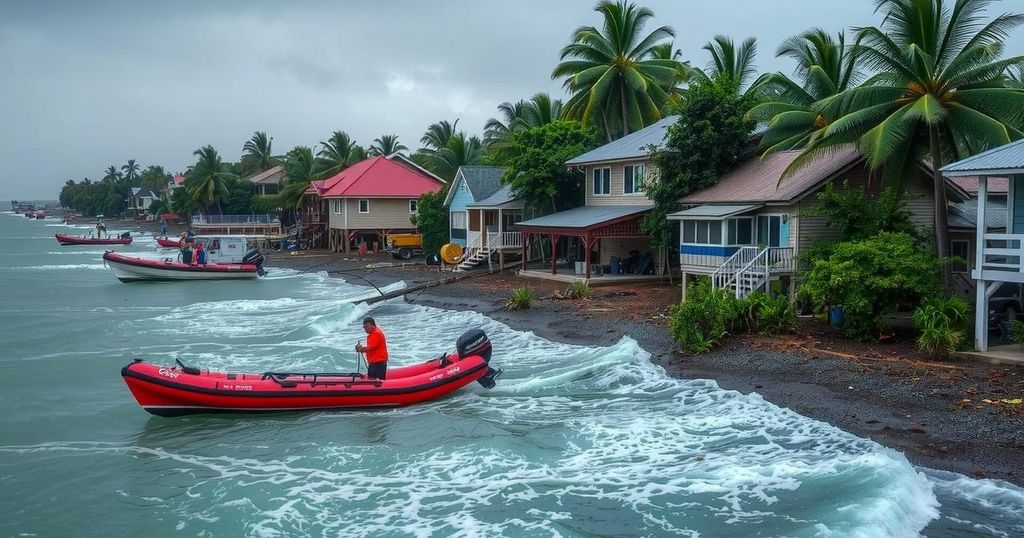Mayotte Faces Unprecedented Cyclone Aftermath as Rescue Efforts Commence

A major rescue operation is underway in Mayotte following Cyclone Chido, which brought winds over 140 mph, causing widespread destruction. The poorest communities have suffered the most due to inadequate housing being destroyed. French authorities are mobilizing military support and relief supplies, while an emergency meeting with President Emmanuel Macron is anticipated. This cyclone is noted as the worst in the region in 90 years.
A significant rescue operation has been initiated in Mayotte, a French overseas territory situated off the southeast coast of Africa, in response to the devastating impact of Cyclone Chido. This cyclone generated winds exceeding 140 mph (225 km/h), resulting in extensive destruction of infrastructure, including homes, power lines, roads, the primary airport, and the local hospital. The cyclone has had a catastrophic effect on the impoverished communities, many of whom reside in inadequately constructed shelters that were severely damaged by the hurricane-force winds.
Mayotte consists of two primary islands, Grande-Terre and Petite-Terre, and is home to approximately 321,000 residents. The region is classified under French jurisdiction, governed by the same laws as mainland France despite being nearly 5,000 miles distant from Paris. Cyclone season in Mayotte typically commences in December and persists until March. The French weather service, Meteo France, has characterized Cyclone Chido as the most powerful storm to strike the area in over 90 years, underscoring the severity of the situation.
In summary, the rescue efforts in Mayotte are critical as the territory grapples with the aftermath of the worst cyclone in nearly a century. With the arrival of more than 100 French soldiers supporting emergency operations and additional relief supplies in transit, authorities are working diligently to provide essential assistance to the affected populace. French President Emmanuel Macron’s plans to convene an emergency meeting further demonstrate the urgency of the response to this natural disaster.
Original Source: www.bbc.co.uk






